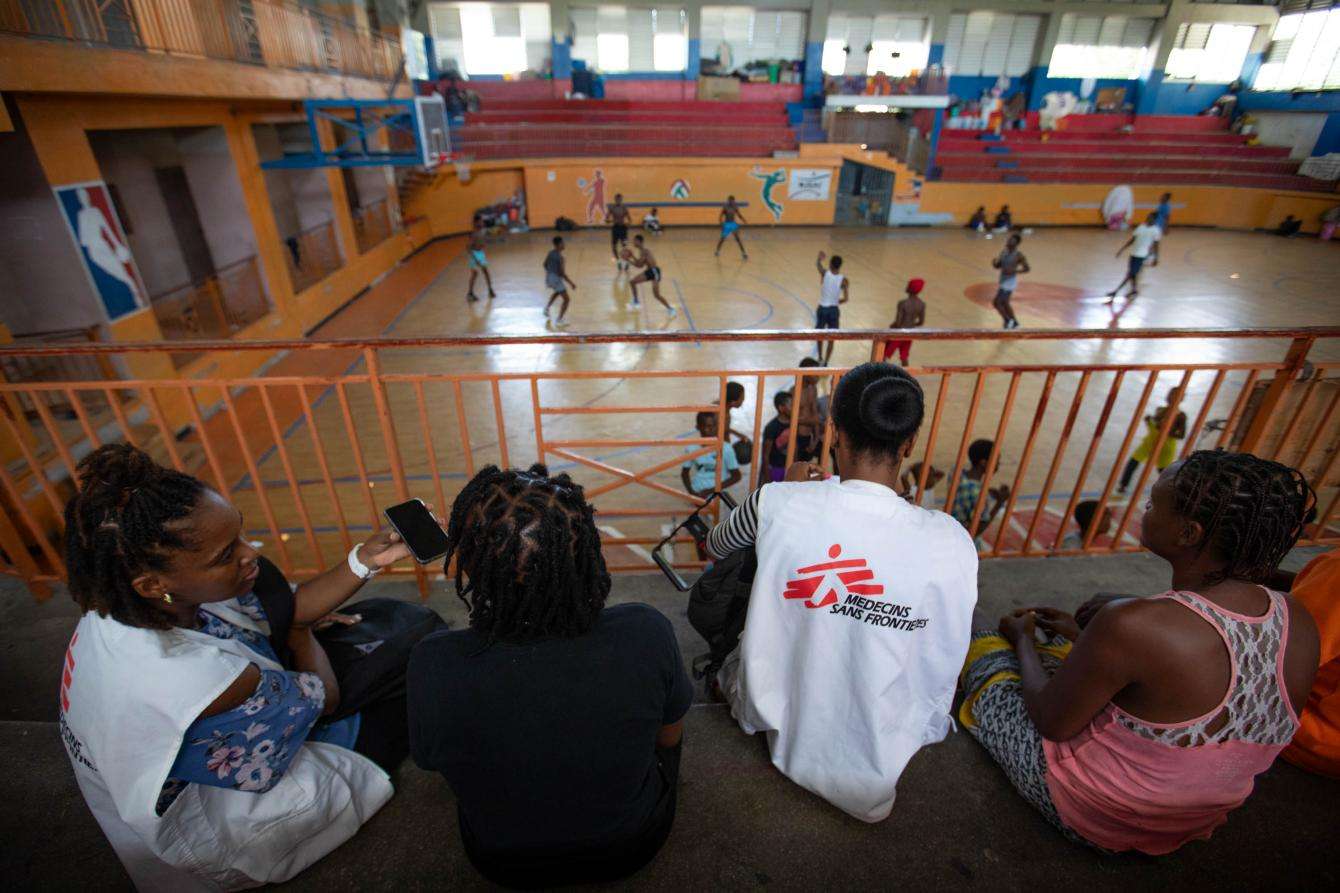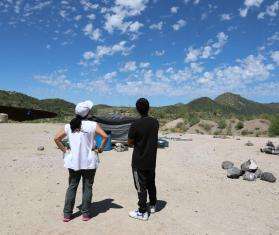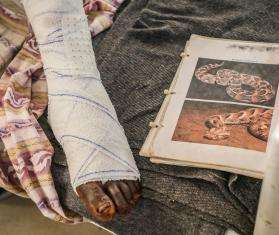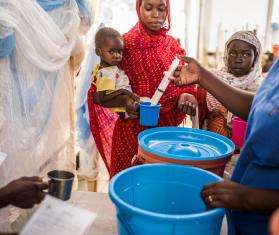Since a surge in fighting between armed groups and the Haitian government in February, many people in Port-au-Prince have fled their homes, seeking refuge in overcrowded shelters. In response, Doctors Without Borders/Médecins Sans Frontières (MSF) increased efforts to provide water, sanitation, and hygiene services to those living in makeshift camps across the city in recent months.
Over 578,000 people are now displaced in Haiti, with more than 112,000 living in 96 informal sites in the Port-au-Prince metropolitan area, including in schools, churches, and sports fields. Many of these sites lack water supplies and sanitation facilities such as latrines, resulting in difficult and dangerous living conditions and increasing the risk of waterborne diseases. Through MSF’s emergency response, our teams provided more than 4.5 million liters (over 1 million gallons) of treated water in 15 sites, trained site managers on water chlorination and hygiene, built or renovated nine latrines and nine emergency showers, and distributed hygiene kits.
The rising threat of waterborne diseases
In areas with inadequate access to treated water and latrines, MSF mobile clinics have treated hundreds of people for waterborne diseases including acute watery diarrhea and scabies, a skin condition linked to hygiene. Cholera, which has surged several times in Port-au-Prince since 2022, remains a significant threat under these conditions.
However, the need for treated water and sanitation facilities in displacement sites and violence-affected neighborhoods is far beyond what MSF can provide.
Marie-Ange, a 52-year-old resident of a displacement camp, explained that finding water is a real struggle. “Sometimes, the water we have causes skin problems, but we have no other choice but to use it for washing and laundry,” she said.
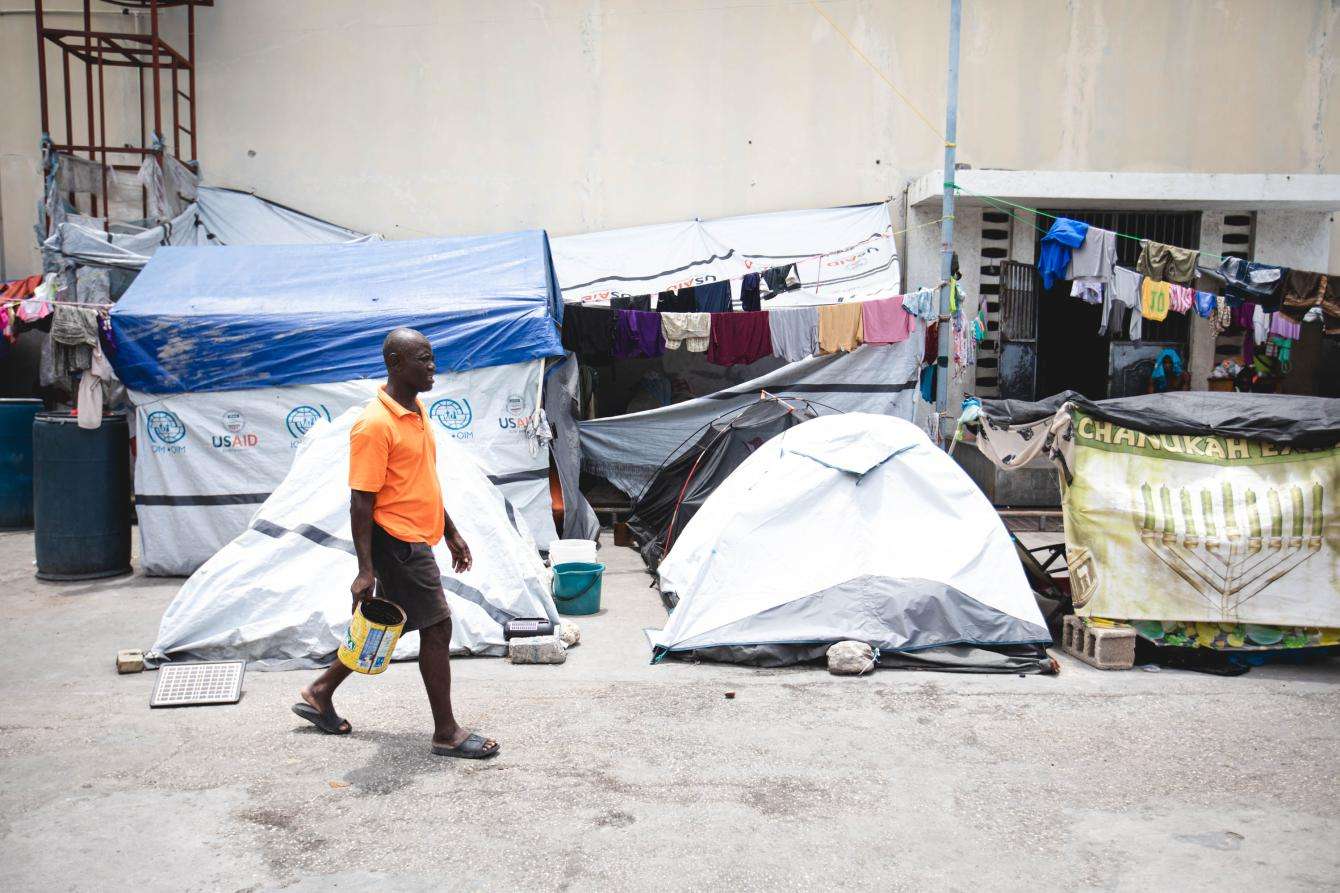
More support is needed to continue water and sanitation services
Efforts are underway to identify organizations that can continue to provide water in the 15 sites served by MSF beyond August 31, when MSF’s water and sanitation services in these areas are planned to end.
“As an emergency medical organization, we stepped in to fill gaps in water and sanitation services when the health situation became critical and no other major actor could respond,” said Sophie Mealier, MSF head of mission. “Now that access to the existing sites has improved, it is time for other actors to meet these needs while we continue to focus on areas that are more difficult to reach, and critical health needs.”
Prolonged displacement leads to further challenges, MSF staff say.
"The majority of the sites have significant water, sanitation and hygiene problems,” explained Frenso Désir, MSF water and sanitation project supervisor. "For instance, while MSF provides potable water and other services, sanitation remains a major challenge. Waste management is a persistent issue, exacerbated by the control of disposal sites by armed groups.”
MSF calls for more humanitarian aid to address the dire needs of displaced people, especially water, sanitation and hygiene services such as water trucking, rehabilitation of latrines and showers, distribution of hygiene kits, and health and hygiene promotion. MSF also urges stakeholders to allocate necessary resources to ensure the safety and dignity of displaced people.
